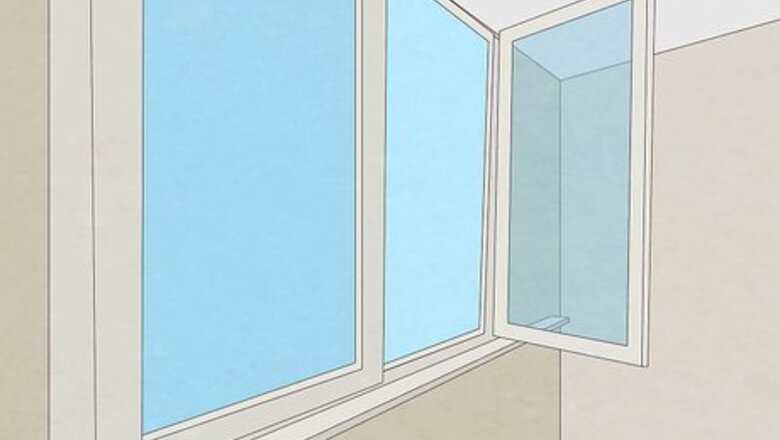
views
X
Research source
Fortunately, there are plenty of ways to get your bedroom smelling good again without harm to yourself or those around you.
Cleaning Your Bedroom
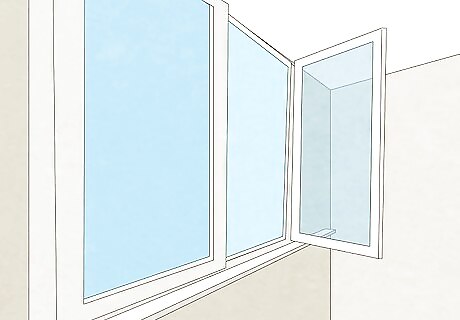
Open your windows. If possible, open your window at least once a week to bring some fresh air into your room. There's no better air than fresh air; plus, direct sunlight can kill mold and other odor-causing bacteria. Contrary to popular belief, outdoor air can be less toxic than indoor air, where things like lead dust, radon, and other toxins can build up. When the weather is nice, open your window(s) once a day for at least 5 minutes.
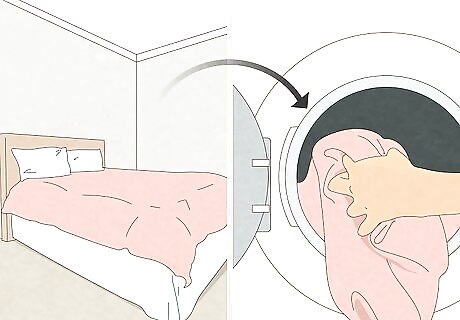
Clean the bed. Wash your sheets and pillowcases once a week, and clean your comforter at least once a season (every 3 months). Bedding can be odorous if you don't wash it regularly. Instead of making your bed immediately after getting up, pull the sheets down so that the mattress can air out for at least 30 minutes. Your body releases moisture when you sleep, which can dampen the bedding, making it a breeding ground for mold and bacteria.
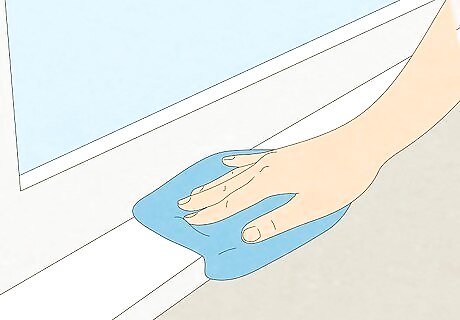
Wipe down surfaces with a damp rag. Use a microfiber dust rag to trap dust, or consider using homemade lemon rags for an added fresh scent. Make these dust rags in advance, and use them to dust your bookshelves, window sills, electronics, and other things. Mix 1 cup (240 mL) of water, 1 cup (240 mL) of white vinegar, and 1 tablespoon (15 mL) of olive oil. Soak a few dust rags in the solution. Old t-shirts, underwear and socks can gain a second life as star cleaners! Wring out the rags so they are damp-dry, and then place them in a glass jar, layering them with the rind of 1 lemon cut into a few pieces. Close the jar tightly. To make things smell extra nice, dilute a few drops of your favorite essential oil in water. Dampen a rag with the oil solution and use that to wipe down any dusty surfaces.
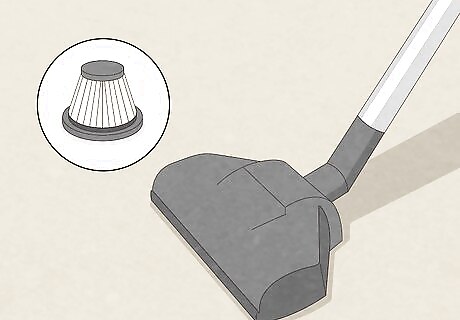
Use a vacuum cleaner with a HEPA filter. After cleaning your room, vacuuming ensures that you have cleaned everything off your floor. Don't forget the corners, under the bed, upholstered furniture, and even the walls, where dust can accumulate. The HEPA filter helps trap allergens like dirt and dust, preventing them from being released into the air. Vacuum 2 to 3 times a week if possible, and wash out the HEPA filter regularly.
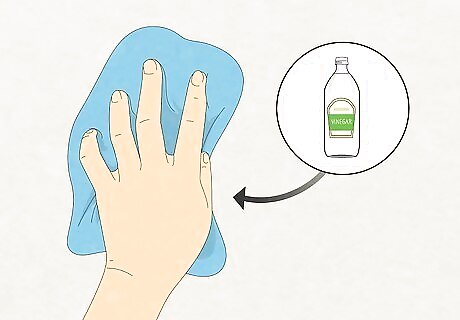
Apply vinegar to the walls. The walls of your room can trap and store many odors, which vinegar helps to eliminate. Mix .25 cups (59 mL) of vinegar with 2 US quarts (1.9 L) of water. Dip a sponge or washcloth into the mixture and clean your walls. Don't worry about the smell of the vinegar; it goes away once it dries.
Eliminating Odors
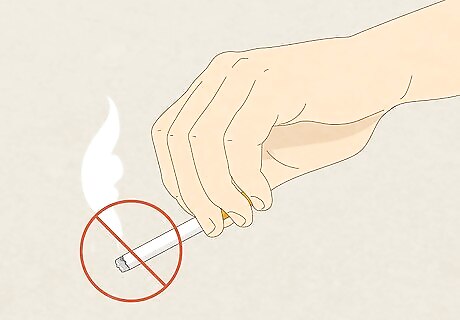
Make your bedroom a non-smoking room. Cigarette smoke clings to clothes and furnishings, and is a major contributor to air pollution in the home. Consider quitting altogether for maximum health benefits to you and those around you. Or, at the very least, limit smoking to outside.
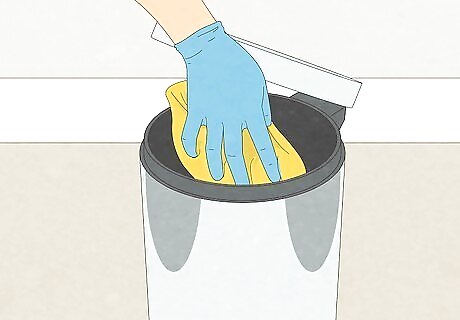
Keep your garbage can clean. If you have a rubbish bin in your room, remember to empty it regularly and give it a good clean by wiping it with an old rag and commercial spray. Also try spraying it with some air freshener to get rid of all the smelly toxins. Look for a trash can with a lid that closes. This can help keep any unpleasant odors contained. Avoid throwing away food garbage in your bedroom wastebasket if possible, since food garbage can quickly smell up a room even in a covered container. Carry any food garbage out of your room immediately and dispose of it in the kitchen garbage or an outdoor dumpster.
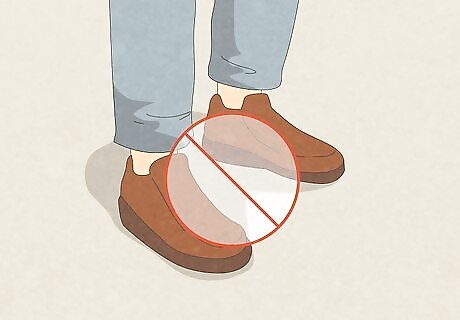
Don't wear shoes into your bedroom. Shoes can track in a whole host of unsavory things, from traces of fecal matter to toxic chemicals that settle on city sidewalks. Leaving your shoes at the door helps keep your bedroom a healthy and better-smelling place.
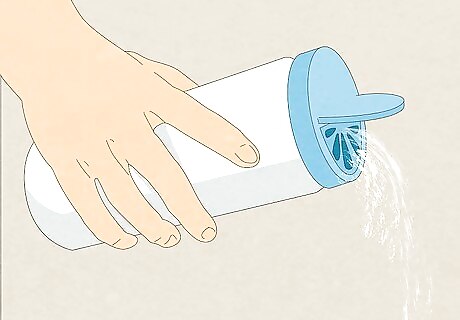
Use a carpet freshener. Carpets can often be the source of odors. Sprinkle a commercial carpet freshener onto your rug and vacuum up (follow the instructions for the specific product you're using). Alternatively, consider making this homemade solution, which gets your rug or carpet smelling fresh in no time: Mix 1/2 a cup (110 g) of baking soda with 1/2 a cup (100 g) of borax in a plastic bowl, and then add 1 teaspoon (4.9 mL) of your favorite essential oil (wild orange is a natural flea repellent) or 1 teaspoon (about 2 g) of cinnamon or cloves (the latter deters moths). Stir together until the mixture is free of lumps. Sprinkle the solution onto the carpet and let it sit 15-20 minutes, then vacuum it up. If you're worried about staining a light-colored carpet, skip the cinnamon or cloves. You can use cinnamon or clove essential oils instead. If you or someone else is sensitive to smells, use plain baking soda instead. Simply sprinkle it on the carpet, let it sit for 15-20 minutes, then vacuum it up.
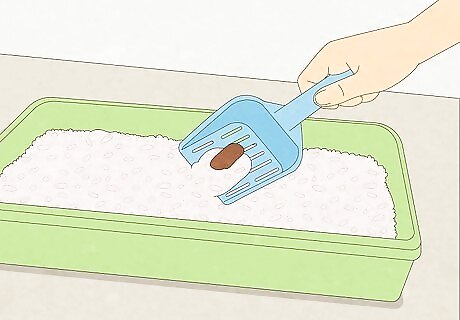
Keep pet habitats clean. If you share your bedroom with a pet, make sure that you clean their living spaces, as well. Dispose of solid waste on a daily basis, and clean litter boxes, cages, and aquariums regularly. If your pet sleeps in your room, wash its bedding more frequently than you wash your own. Pet beds and blankets can pick up bad smells quickly.
Using Natural Air Fresheners
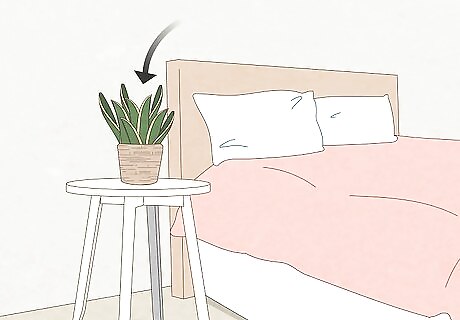
Add some plants to your room. Not only do plants liven up your decor, research shows that they may also filter out toxins released by synthetic materials. However, keep in mind that some plants can trigger allergies in susceptible people, so use caution when selecting indoor greenery. If you have pets or children, make sure that the plant is not poisonous if ingested. Make sure you choose plants that are right for the conditions in your room. Some plants need lots of direct sunlight, while others like shadier spots. Check the plants’ temperature and humidity needs as well–these are often included in a care tag when you buy a plant.
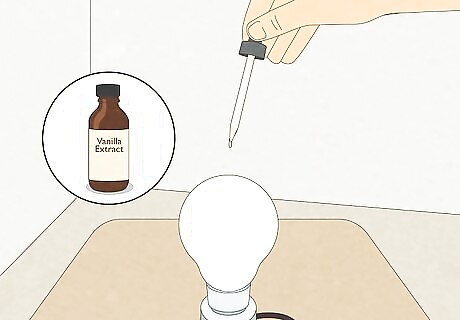
Dab a few drops of vanilla extract on a cool light bulb. When you turn the light on, the warmth from the bulb will release a pleasant smell.
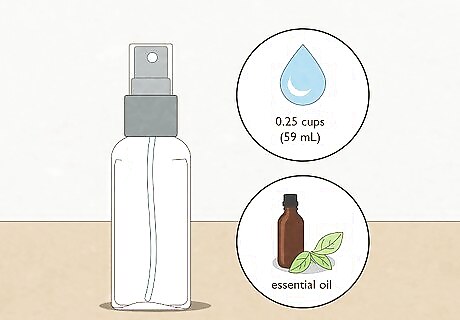
Make your own natural room spray. While commercial air fresheners can contain a whole host of harmful chemicals, a simple mix of essential oils and water is a great alternative. Simply combine .25 cups (59 mL) of distilled water and 10-15 drops of your favorite essential oil in an empty spray bottle. Lavender is known for its calming properties, while citrus scents like lemon, tangerine, wild orange, and grapefruit can be very refreshing. A variation on this is to add 1 tsp (4 g) of baking soda to the mix. This makes a great deodorizing spray for furniture. You can use these sprays on your linens, curtains, and rugs.
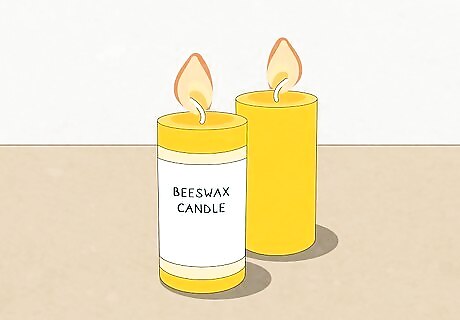
Try naturally scented soy or beeswax candles. Candles add atmosphere and fill the air with an inviting scent. That said, you need to be choosy when picking your candles. Many contain paraffin, which releases carcinogenic chemicals when it burns; plus, material for the wick often has lead, and artificial scents may contain harmful toxins. Look for soy candles scented with essential oils, or beeswax candles, which release a subtle honey fragrance. You can make your own candles at home, too.

Put out a dish of potpourri. Potpourri is a mixture of aromatic things like dried flower petals, leaves, and spices that fill your room with a long-lasting scent. You can buy potpourri at a drugstore, home décor store, or online. Alternatively, it's easy to make your own: just mix together star anise, cinnamon sticks, and cloves into a small jar or dish, and place the dish in your room. If you're feeling ambitious, you can dehydrate apples and oranges in the oven and add them to the mix. Cut the apple and orange into very thin slices, place them on a cookie sheet in a single layer, and bake them in the oven at 250 °F (121 °C) for about 1 1/2 hours, or until they are dry.




















Comments
0 comment